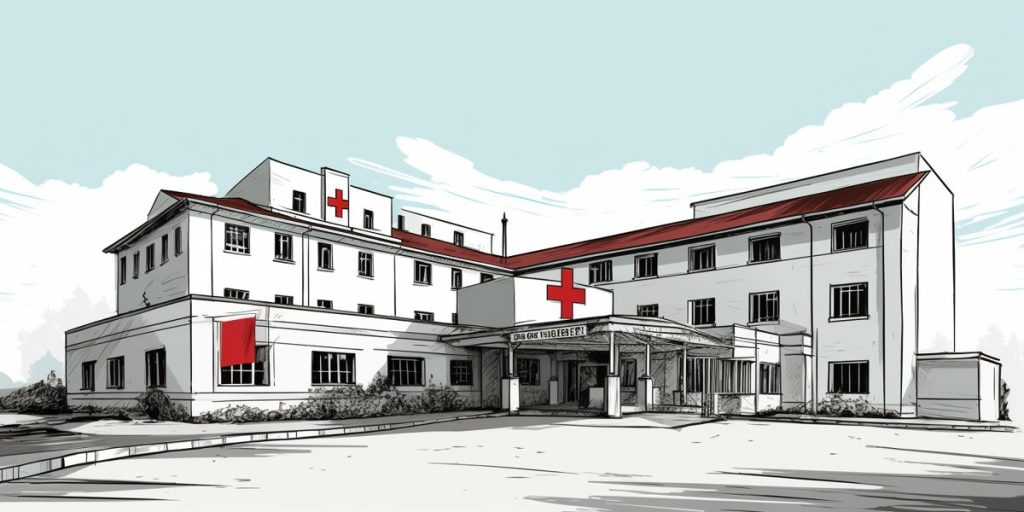The United States is urging all parties in the Gaza conflict to respect the neutrality of hospitals, condemning any military use of medical facilities. National Security Adviser Jake Sullivan emphasized the importance of avoiding combat in hospitals and highlighted US efforts in evacuating American citizens from conflict zones.
What is the US stance on hospital safety during the Gaza conflict?
The United States urges all parties in the Gaza conflict to respect the neutrality of hospitals. National Security Adviser Jake Sullivan emphasized avoiding combat in medical facilities, condemning any military use of hospitals as a violation of international laws of war, and highlighted US efforts in evacuating American citizens from conflict zones.
As tensions escalate and the conflict in the Gaza Strip takes a severe toll on human lives and infrastructure, concerns about the sanctity of medical facilities have come to the forefront. The United States has expressed its position on the matter, urging all parties to respect the neutrality of hospitals.
The White House Expresses Concerns
The United States has a clear stance when it comes to the battlegrounds in the Gaza conflict, especially concerning locations that should be untouched sanctuaries for civilians. National Security Adviser Jake Sullivan articulated this position in a statement during an interview.
Avoiding Combat in Medical Facilities
“The United States does not want to see firefights in hospitals where innocent people, patients receiving medical care, are caught in the crossfire and we’ve had active consultations with the Israeli Defense Forces on this,” Sullivan stated in a segment on “Face the Nation.”
The Situation on the Ground
In the thick of the conflict, the practicality of such a stance is tested. Reports surface of hospitals such as Al-Shifa, located in the heart of Gaza, being overwhelmed not only by the influx of the wounded but also by the encroaching battlefield.
Gaza’s Largest Hospital in Jeopardy
Al-Shifa, Gaza’s largest hospital, is in a dire situation. Israeli forces report readiness to evacuate infants and vulnerable patients from the facility. However, officials in Gaza paint a grimmer picture, indicating that civilians, including patients and medical staff, remain trapped within its walls.
Power Outages and Casualties
With continued armed engagements nearby, the hospital’s capacity to operate is further hindered by power outages, exacerbating the risk to the lives of those inside, especially the most delicate patients such as newborns.
Accusations of Misuse of Medical Facilities
Amidst the turmoil, there are claims of hospitals being used for military purposes, which complicates further the efforts to keep these places safe.
Hamas’ Alleged Violations
Sullivan relayed concerning reports: “Hamas is using hospitals as it uses many other civilian facilities, for command and control, for weapons storage, to house its fighters. And this is a violation of the laws of war.” Such actions, if true, would contravene international humanitarian laws and endanger lives even further.
US Evacuation Efforts
The United States is not only voicing concerns but is also actively trying to mitigate risks to its citizens.
Safeguarding American Lives
Sullivan mentioned ongoing efforts to evacuate American citizens from the area. “The gate has been open and closed. The lists have included Americans some days and not other days. But the bottom line is, today the gate is open. We are moving American citizens and their family members out,” he affirmed.
Please note that the “Around the Web” section and other unrelated posts and listings from the provided content were not included, as they do not pertain to the core topic. If you need those sections to be included or expanded upon as well, please let me know.
Lessons Learned
The conflict in the Gaza Strip has highlighted the importance of protecting the neutrality of hospitals and ensuring the safety of patients and medical staff. The United States has taken a clear stance on this issue, urging all parties involved to avoid combat in medical facilities and condemning any military use of hospitals.
One of the key lessons learned from this situation is the need for effective communication and coordination between military forces and medical facilities. National Security Adviser Jake Sullivan emphasized the importance of active consultations with the Israeli Defense Forces to prevent firefights in hospitals and protect innocent people receiving medical care. This highlights the importance of establishing clear protocols and guidelines to ensure the safety of hospitals and those inside during times of conflict.
Another lesson learned is the vulnerability of hospitals and the need for additional support and resources during times of crisis. The situation at Al-Shifa, Gaza’s largest hospital, showcases the challenges faced by medical facilities in conflict zones. Power outages and the encroaching battlefield have put the lives of patients and medical staff at risk. This emphasizes the need for international assistance and cooperation to provide the necessary resources, such as emergency generators and medical supplies, to ensure the continuity of healthcare services in these critical situations.
Furthermore, the accusations of hospitals being used for military purposes by Hamas highlight the complexities of protecting the sanctity of medical facilities. This underscores the importance of thorough investigations and accountability for any violations of international humanitarian laws. It also calls for increased efforts to promote awareness and adherence to these laws among all parties involved in conflicts, to prevent further endangerment of lives and ensure the proper functioning of medical facilities as safe spaces for civilians.
In conclusion, the Gaza conflict has brought to light the need for enhanced measures to protect hospitals and uphold their neutrality during times of conflict. Effective communication, adequate resources, and adherence to international humanitarian laws are crucial in ensuring the safety and well-being of patients, medical staff, and civilians in these critical situations. The United States’ stance on hospital safety serves as an important reminder of these lessons and the urgent need for action to prevent further harm in conflict zones.

